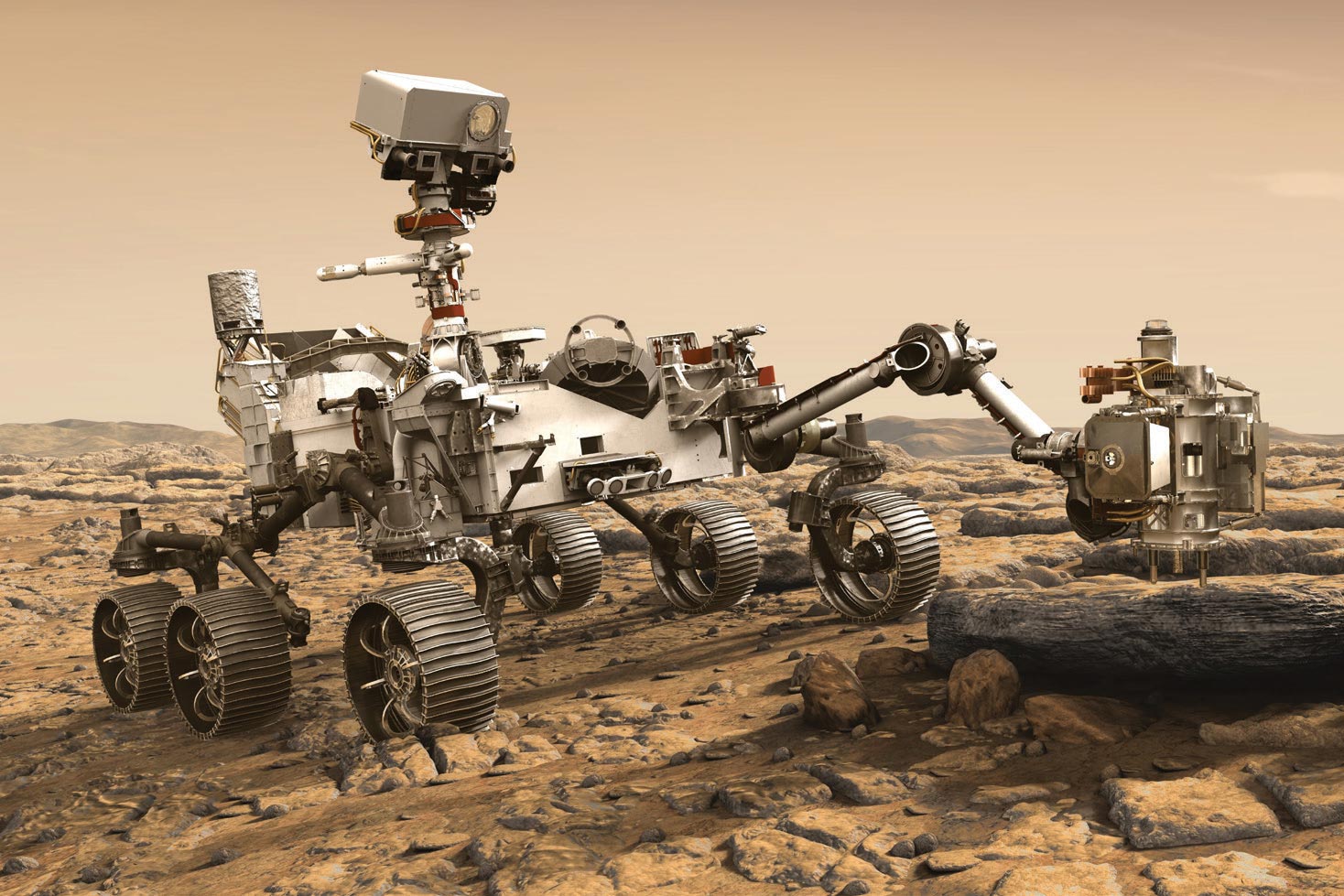NASA's Perseverance rover 'ready for the most precise landing' on Mars today
By Rjay Zuriaga Castor
 |
| PHOTO: SciTech Daily |
With about 2.4 million miles (3.9 million kilometers) left to travel in space, NASA’s Mars 2020 Perseverance mission, the agency’s fifth rover on the Red Planet and will have its mission of least one Mars year (about 687 Earth days) , is "ready for the most precise landing" today.
Engineers at NASA’s Jet Propulsion Laboratory in Southern California, where the mission is managed, have confirmed that the spacecraft is healthy and on target to touch down in Jezero Crater starting at 11:15 a.m. PST; 2:15 p.m. EST; 19:15 UTC on February 18, 2021.
Channels that will carry the live broadcast include:
YouTube, Twitter, Facebook, LinkedIn, Twitch, Daily Motion, Theta.TV, and NASA App.
News briefings and launch commentary will be streamed on NASA TV, NASA.gov/live, YouTube.com/NASAJPL and Ustream.tv/NASAJPL
Thomas Zurbuchen, associate administrator for the Science Mission Directorate at NASA Headquarters in Washington said Perseverance is NASA’s most ambitious Mars rover mission yet, focused scientifically on finding out whether there was ever any life on Mars in the past.
Zurbuchen added that the landing team will have its hands full getting us to Jezero Crater – the most challenging Martian terrain ever targeted for a landing.
Jezero is a basin where scientists believe an ancient river flowed into a lake and deposited sediments in a fan shape known as a delta. Scientists think the environment here was likely to have preserved signs of any life that gained a foothold billions of years ago – but Jezero also has steep cliffs, sand dunes, and boulder fields.
“The Perseverance team is putting the final touches on the complex choreography required to land in Jezero Crater,” said Jennifer Trosper, deputy project manager for the mission at JPL.
“No Mars landing is guaranteed, but we have been preparing a decade to put this rover’s wheels down on the surface of Mars and get to work," Trosper added.
The Perseverance rover took off on July 30, 2020, at 4:50 a.m. PDT (7:50 a.m. EDT) and was launched on an Atlas V-541 rocket from Launch Complex 41 at Cape Canaveral Air Force Station, Florida.
A key objective of Perseverance’s mission on Mars is astrobiology, including the search for signs of ancient microbial life. The rover will characterize the planet’s geology and past climate, pave the way for human exploration of the Red Planet, and will be the first mission to collect and cache Martian rock and sediment for later return to Earth.
Subsequent NASA missions, in cooperation with ESA (European Space Agency), would send spacecraft to Mars to collect these sealed samples from the surface and return them to Earth for in-depth analysis.
The Mars 2020 mission is part of a larger NASA initiative that includes missions to the Moon as a way to prepare for human exploration of the Red Planet. NASA will establish a sustained human presence on and around the Moon through NASA’s Artemis lunar exploration plans.
RELATED: NASA, NASA Timeline
